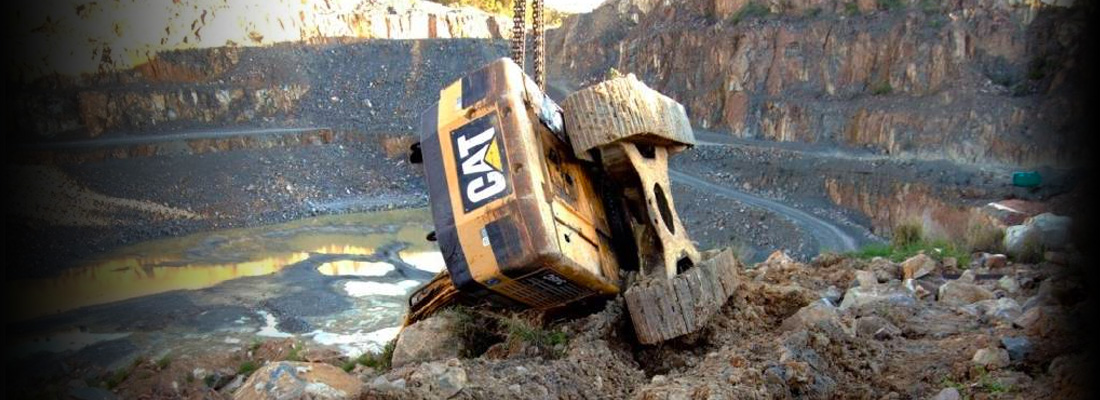

| PREVIOUS | HOME | NEXT |
Death ‘no bar to disability claim’ by John Reynolds, KT Journalism The estate of a NSW worker who died minutes after an excavator rolled on him is entitled to both permanent disability and death compensation, NSW Supreme Court Justice Monika Schmidt has ruled. A medical examination found he was not killed instantly but was dead by the time rescuers reached him minutes later. Mr Messenger's employer, Hunter Quarries (HQ), accepted death and funeral expense liability but rejected a claim for permanent impairment. It argued the 1987 NSW Workers' Compensation Act's term "permanent disability" meant the injury must be "lasting indefinitely without change". On 27 February 2017, a Workers' Compensation Commission (WCS) assessment panel ruled Mr Messenger's estate was entitled to both compensation claims. HQ appealed against the ruling. HQ argued WCS misinterpreted the meaning of "permanent disability" and its ruling enabled Mr Messenger's estate to be doubly compensated for one incident, which was not permitted by the Act. It said an approved medical specialist had reviewed the case and found Mr Messenger's injuries were so severe, death was inevitable. While the specialist initially assessed permanent impairment at 100%, she later changed her assessment to 0%. The NSW State Insurance Regulatory Authority supported HQ's argument in court. On 22 November, Justice Schmidt upheld WCS's ruling, saying HQ's interpretation relied on ambiguity that was not in the Act. She agreed a worker who was killed instantly would not be entitled to permanent disability but there were no time limitations between a permanent injury and an inevitable death. It could be years or minutes. "Rights to compensation are not extinguished by subsequent developments, even death," she said. "Impairment which finally results in death is impairment of the most serious kind, whether death results quickly or after more prolonged suffering." Justice Schmidt said the meaning of the term "permanent impairment" in the NSW Workers Compensation Act 1987 and the NSW Workplace Injury Management and Workers Compensation Act 1998 was the primary issue to be decided. HQ's case was the term did not encompass impairment so serious that death would inevitably follow, even within a short time frame. Mr Messenger's estate argued the term referred to impairments so serious an injured worker could not recover from them, in either the short or longer term. Justice Schmidt found the estate's interpretation to have more foundation. She said "permanent impairment" did not concern an impairment for a worker's lifespan, whether death resulted in the short or longer term; a lifespan cut short by the consequences of an impairment; or an impairment which had no affect at all on an injured worker's lifespan. "The legislative scheme is concerned with those who are injured at work. When a worker suffers an injury which causes an impairment so serious that he or she cannot recover from it, even with treatment, there is permanent impairment," she said. "If the impairment is temporary, that is one from which the injured worker can recover with time and/or treatment; it is not a permanent impairment." She said Mr Messenger's injuries precisely matched the definition of permanent impairment in both Acts. The crush injuries to his chest had impaired his ability to breath but he was not killed instantly. "His heart continued to beat, but his death was likely to have followed within minutes, during which he was likely to have been unconscious," she said. "[It was] an impairment which finally resulted in death, the most serious kind [of impairment] a work injury can cause." Justice Schmidt said the time it took for Mr Messenger to die after the incident should not be considered in determining his right to compensation. Had Mr Messenger been permanently injured and lived for weeks rather than a few minutes, he would have been entitled to permanent disability compensation until his death. No one would have objected to his estate or family receiving death compensation after he died, she said. Justice Schmidt also rejected HQ's argument Mr Messenger's estate would be doubly compensated if awarded permanent injury damages on top of the death and funeral compensation already paid. She found compensation for permanent injury and death because of the injury were treated separately in the Act and were often paid to different people for different purposes and, therefore, paying the estate both claims was not double compensation. She ordered HQ to pay the estate's costs. Hunter Quarries Pty Ltd v Alexandra Mexon as administrator for the Estate of Ryan Messenger [2017], NSWSC 1587, 22/11/2017 |
Resolve is the official publication of the Australian Insurance Law Association and
the New Zealand Insurance Law Association.

